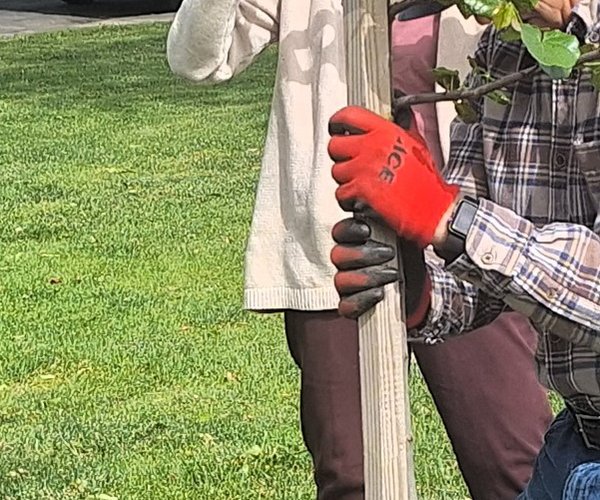Housing on the way up and then on the way down defined Manteca and the rest of the nation in the first decade of the 20th century.
Median closed escrow prices of existing homes in Manteca hit a record high $420,000 in 2006. Then the housing bubble burst sending median prices plunging 58.57 percent to $174,000 by the start of 2009.
Manteca, though, weathered the economic downtown better than most cities in the Northern San Joaquin Valley thanks to the four “S” effort — Spreckels Park, softball, senior living, and shopping.
It started late in the 1990s with city leaders ignoring the doom and gloom predictions with the closing of Manteca’s most high profile employer Spreckels Sugar and the subsequent loss of 200 jobs. Partnering with Atherton Kirk Development — a firm that had only built homes up until then — the city was trying to avoid creating a 362-acre cancerous blight at the highly visible intersection of Highway 99 and the 120 Bypass.
There was one big problem. The developers had burned through money cleaning up the site. Lenders wouldn’t loan them a cent because it was an old factory site. That’s when an $8 million redevelopment agency loan — paid back early with interest — played a pivotal role. It allowed infrastructure to be put in place to make the 362 acres marketable.
The end result countered the loss of 200 jobs with more than 1,600 new ones at Spreckels Park.
The new business park and commercial center created enough property tax base for Manteca to leverage redevelopment agency borrowing that put infrastructure in place that made it possible for the Stadium Retail Center to be built plus fund the $28 million Big League Dreams complex.
At the same time AKF Development — that by then added Bill Filios as a partner — started building on the success of Spreckels Park to put together land deals that made The Promenade Shops at Orchard Valley anchored by Bass Pro Shops as well as Del Webb at Woodbridge a reality.
A unique Manteca invention — bonus bucks put in place in 1999 to assure sewer allocation over multiple years under Manteca’s growth cap — ultimately generated close to $42 million. The fees paid by developers in exchange for sewer allocation certainty had no strings attached.
The money was used to provide various amenities such as the completion of the Union Road fire station, the skate park, and lights on the Woodward Park soccer field. Bonus bucks also allowed the city to shore up the municipal general fund to cover shortfalls over multiple years to the tune of $12 million.
It did one other thing that proved critical for Manteca’s weathering the Great Recession in somewhat better shape than many of its neighbors. By providing sewer allocation certainty banks would underwrite lot improvements in advance of the market to get scales of economy. When the recession hit, Manteca was left with 965 improved buildable lots.
The only way banks could get paid back is if building continued. Manteca suspended bonus bucks to help make home building pencil out. In reality, many builders took losses and cut margins to razor thin levels to keep building so they could sell homes. That is why in four straight years Manteca had more than 300 annual housing starts. In two of those years, the 300 homes built annually in Manteca were more than the rest of the three-county Northern San Joaquin Valley region combined.
Manteca also enjoyed great timing.
Del Webb at Woodbridge was underway when the housing bubble started to burst with the first home being completed in 2008 in the age-restricted community. Del Webb’s niche market remained stronger than the rest of the market. Del Webb was building 30 percent of all new homes in Manteca during the economic slowdown.
That also meant new sources of shoppers for Manteca stores and services.
At the same time Bass Pro Shops opened allowing Manteca to counter substantial drop-offs in retail sales tax revenues. More than 97 percent of all transactions at the Bass Pro Shop store are made by non-Manteca residents. In short, visitors are paying sales taxes to support Manteca municipal services while paying the half cent sales tax to augment police and fire serves as well.
The 2.1 million annual visitors to Bass Pro also spend money at other Manteca locales.
It was the same year a sales tax sharing deal that ended this year lured Costco into the Manteca market instead of the firm building a second Modesto store.
The deal effectively brought sales tax dollars Manteca consumers were spending in Tracy and Modesto at Costco stores back into Manteca.
Big League Dreams opened in 2007. The sports complex with six replica Major League Baseball fields and an indoor soccer arena is the most successful in the BLD system based on attendance with 450,000 paid annual visitors.
Most are from out-of-town. They end up eating in Manteca restaurants and staying in Manteca hotels for multiple-day tournaments. The BLD complex has booked — until the pandemic hit — at least one tournament if not more every weekend since it has been open including over Christmas and Thanksgiving weekends.
To contact Dennis Wyatt, email dwyatt@MantecaBulletin.com





